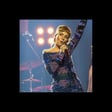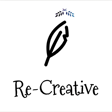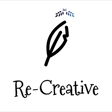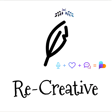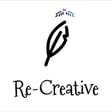Joe and Mark are joined by Cathi Bond, Canadian writer, broadcaster and novelist.
Joe and Cathi used to work together at the CBC, where Cathi was the “Video Diva.” She had a great gig, watching movies and talking about them on air.
Music is another huge passion in Cathi's life, and informs her choice of art. It’s also an integral part of her writing process. She says her writing sessions often start with building a play list that she’d play while writing.
Cathi is the author of the Woman of Good Standing Trilogy.
It's a fun conversation about music, singing, and the joy of being creative!
For more information, check out the show notes for this episode.
Re-Creative is produced by Donovan Street Press Inc. in association with MonkeyJoy Press.
Contact us at joemahoney@donovanstreetpress.com

